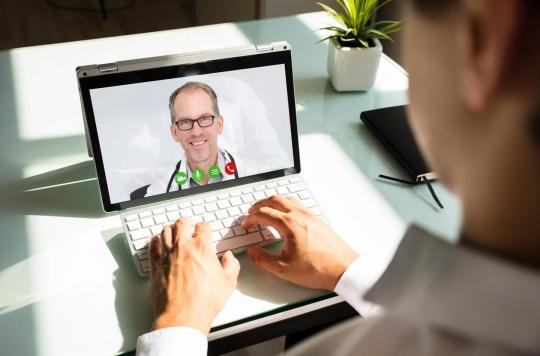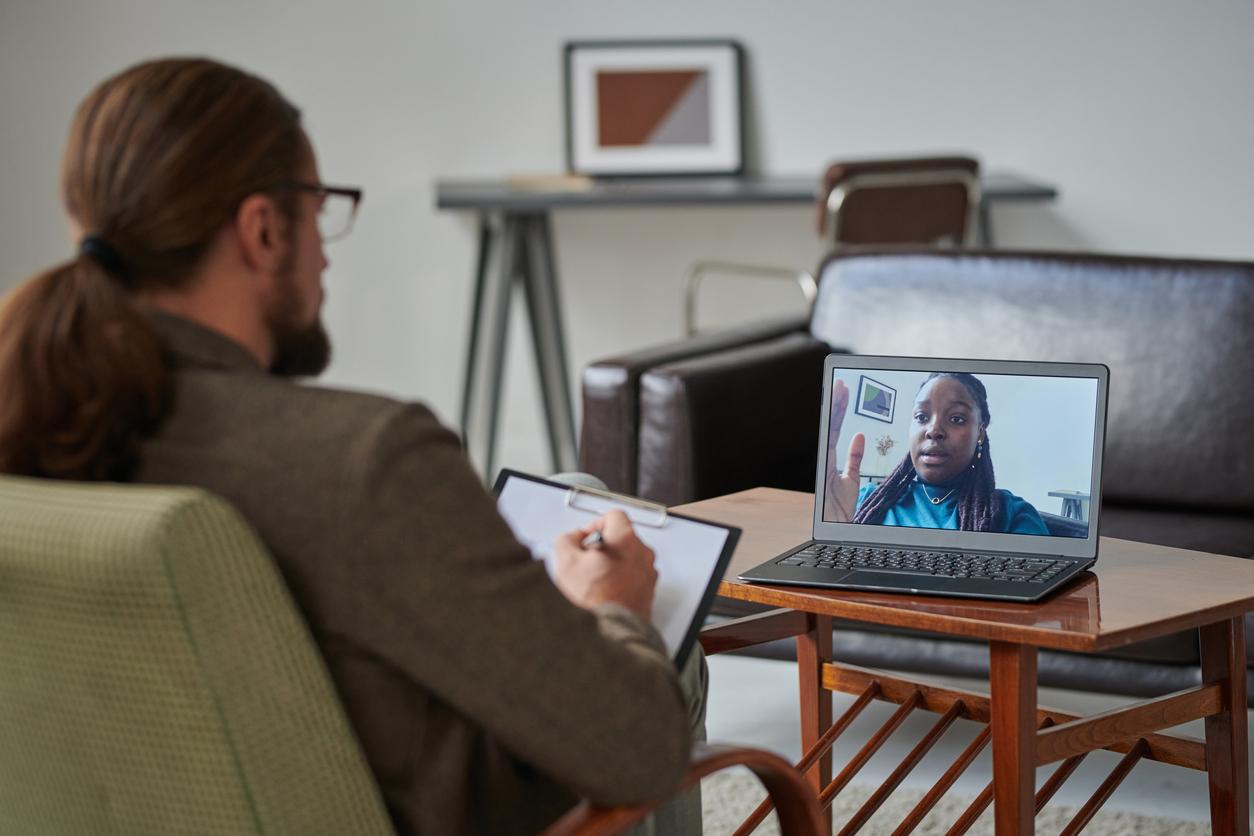Nearly 18 months after health insurance took charge of teleconsultation, nearly 7 out of 10 French people say they are in favor of developing this practice. One person out of two still considers that the impossibility of being physically examined by the doctor is an obstacle to adhering to this new mode of access to a practitioner.

Aware of its interest in facilitating access to care, but cautious about the quality of care compared to a physical consultation: such is, nearly 18 months after its coverage by Health Insurance, the view that the French wear on teleconsultation. This emerges from a survey conducted in January 2O20 by the Harris Interactive Institute on behalf of one of the players in this new “remote” practice of primary care medicine.
However, this survey illustrates the interest that the French have in the arrival of teleconsultation since a very large majority of them are aware of its existence and the main lines of its operation: 89% know that these consultations are carried out by of “real” doctors, graduates and approved by the Order of Physicians, 78% that these teleconsultations are reimbursed by Social Security and 76% that they allow a prescription to be issued.
Better, the people questioned declare, again in the vast majority, that teleconsultation makes it easier to consult a doctor (83%), to fight against the problems of medical demography and medical deserts (78%) and to unclog services. hospital emergency services (77%).
The importance of the direct relationship with the doctor
However, if the reasons for using this mode of consultation are primarily the possibility of renewing a prescription (78%), obtaining medical advice (77%) or treating a minor health problem (70%), the French are more reserved in the case of more serious needs. Just over 4 out of 10 of them plan to use teleconsultation in the case of a sick child or only 28% in the case of health problems considered serious.
In general, the majority of French people are not ready to give up the direct and physical relationship with their doctor. Even in the absence of their attending physician, 57% say they prefer to choose another practitioner for a consultation in their office rather than a teleconsultation. Finally, one out of two French people considers that the major obstacle preventing them from taking the step towards teleconsultation remains the impossibility of being examined by the doctor. There is the need to have direct contact with the practitioner (for 36% of respondents) but also the fear of being less well taken care of for 30% of those questioned.
.

















